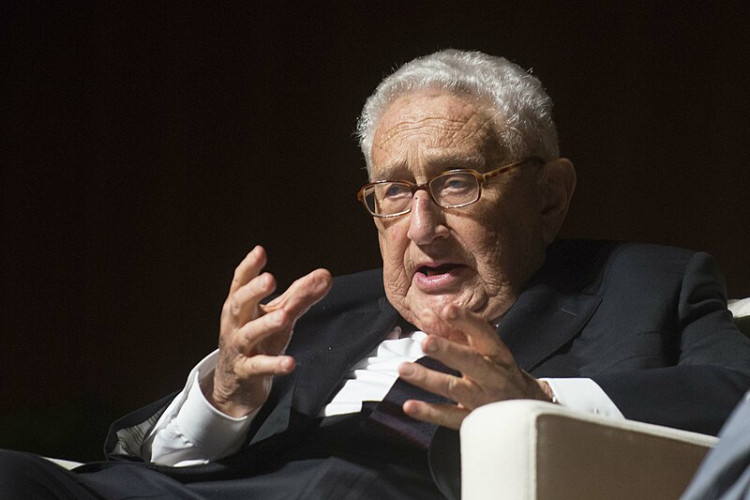Henry Kissinger, a pragmatist strategist known for his transformative diplomatic efforts, passed away at the age of 100, sending shockwaves around the globe. The news of his death on the last day of November 2023 has prompted a global outpouring of tributes.
In the United States, former President George W. Bush expressed his sorrow over Kissinger's death, noting that the country has lost one of its most reliable and unique voices in foreign affairs. Bush praised Kissinger's journey from a Jewish boy fleeing Nazi persecution to becoming a U.S. Secretary of State, highlighting it as a testament to both Kissinger's and America's greatness. He acknowledged Kissinger's service and advice during his tenure under two U.S. presidents and cherished their friendship.
House Speaker Nancy Johnson remarked on Kissinger's immeasurable contributions to U.S. foreign policy and international diplomacy. As a refugee from Nazi Germany, a World War II veteran, and a Nobel Prize laureate, Kissinger's life was unique. Serving as a confidant to multiple presidents, he was one of the most influential figures of the 20th century. Johnson emphasized that Kissinger's efforts to ensure global peace and freedom abroad should be remembered as the Kissinger family mourns a great man.
New York City Mayor Eric Adams also paid tribute, noting Kissinger's escape from Nazi Germany and his legacy as one of the 20th century's most important diplomatic leaders, which continues to shape the world. The Kissinger family settled in New York after fleeing Germany.
Winston Lord, a former U.S. Ambassador to China who accompanied Kissinger on his secret trip to China, reflected on Kissinger's blend of European melancholy and American immigrant optimism. Lord described Kissinger as a tireless advocate for peace, a defender of U.S. national interests, and a valued friend and mentor. He credited Kissinger with changing America's role in the world, uniting the nation during constitutional crises, authoring visionary works, advising world leaders, and enriching national and international discourse over more than seven years.
German Ambassador to the U.S., Emily Haber, shared on social media that Kissinger, as a Jewish immigrant who escaped Nazi persecution, overcame numerous challenges to reach the pinnacle of U.S. diplomacy. She was moved by his enduring passion for the Fürth soccer club, which he supported in his youth.
Columnist Andreas Kluth of Bloomberg wrote that Kissinger defined U.S. foreign policy in the 1970s, bringing governance to the U.S. and redemption to Germany.
While Kissinger's achievements in global diplomacy, notably in advancing U.S.-China relations, are undeniable, he remains a controversial figure in some Western circles. His policies in Vietnam, Cambodia, Chile, and the Middle East, seen as serving U.S. national interests, lacked sufficient public support.
Jeremi Suri, a scholar at the University of Texas at Austin, noted that Kissinger viewed the world from a 30,000-foot perspective, advancing broad interests and long-term goals, but underestimated the negative costs borne by people, especially those living in societies different from the U.S.
Thomas Schwartz, a historian at Vanderbilt University, described Kissinger as the first celebrity American diplomat, a diplomatic genius who saved the world and made peace, but also appeared in magazines and newspapers as a playboy dating beautiful women.
Reflecting on Kissinger's death, a Shanghai-based international affairs researcher pondered the challenges of combining mutual benefit, political wisdom of power balance, and rational diplomatic skills in the face of unprecedented geopolitical changes.
Consulting industry practitioner Zhang Yang lamented Kissinger's passing, saying, "An era that had long ended now draws its final period. The open and progressive Americans gradually fade, leaving behind endless debates and ignorant arrogance. There are no immortal old warriors; they will eventually be forgotten."






